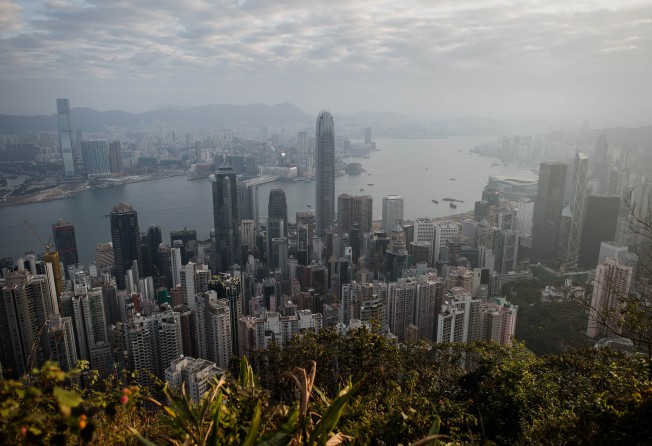We don't need a Future Fund. The future is already upon us
HK government should make better use of its existing resources and assets to meet the spending needs arising from an ageing population

The government's warnings that Hong Kong is heading for a fiscal crisis of Greek proportions are ludicrous.
As Monitor pointed out yesterday, new projections by a group of government advisers that show the city sliding inescapably into a structural deficit are badly flawed.
Even as an ageing population will lead to slower economic growth, the government's advisers assume public spending on capital works will rise from 3.2 per cent of gross domestic product currently to 7.2 per cent by 2041.
In dollar terms, that means they expect infrastructure spending to soar from a record HK$78 billion in the coming financial year to a gobsmacking HK$515 billion in 2041 - before factoring in general inflation.
This is an absurd assumption that severely undermines the credibility of the advisers' conclusions.
In some ways, that's a shame because a few of their fiscal recommendations are solid, sensible and worthwhile.
For example, their insistence that the government should not allow public spending to exceed 20 per cent of GDP is admirable.
There is plenty of evidence from Europe that when government expenditure rises much above this level, the higher taxes or increased debts needed to fund public spending reduce the capital available to finance relatively efficient private investment.
As the private sector gets crowded out, growth slows. The result is a weaker economy.
So constraining government spending is an excellent idea. Some of the advisory group's other notions, however, are rather less commendable.
As well as exaggerating the government's likely future spending commitments, the advisers also massively understate the assets the government can deploy to offset its liabilities.
For example, they warn that on current trends in spending, the government will have burned through its accumulated fiscal reserves by 2027.
However, to come up with this date, they take the narrowest possible definition of the government's reserves.
The only cash available for supporting regular spending, they say, is the HK$394 billion held in the general revenue account.
The HK$132 billion of additional reserves squirrelled away in accounts like the Capital Works Reserve Fund can only be used for their designated purposes, they insist.
Meanwhile, the HK$220 billion held in the Land Fund "has no authorised use" and therefore cannot be used at all.
They dismiss the HK$637 billion of excess reserves held by the Exchange Fund, saying only that "drawdowns from the net assets of the Exchange Fund … would not be a prudent or sustainable solution".
What's more, the advisers ignore entirely the additional HK$215 billion in reserves held by government funds and statutory bodies that are detailed on the Exchange Fund's balance sheet.
They also pay little attention to the government's physical assets, which include Hong Kong's water system, airport, rail network and two theme parks, among many others.
All of these could, and probably should, be privatised. But the advisers frown on the idea of asset sales, declaring "the one-off revenue from asset disposals could not resolve a structural deficit problem".
Similarly, they reject outright the idea that the government should switch to collecting its land revenues as regular income streams in order to fund recurring spending on health and welfare.
"There is no reason why the government should forego and defer receipt of its capital revenues," they state.
In short, they dismiss almost every suggestion for ways the government could meet its future spending needs from existing resources.
They do, however, come up with one new recommendation that is not so much novel as utterly bizarre.
Hong Kong, they say, should set up a "Future Fund". This new account should be seeded with the HK$220 billion held by the Land Fund. In addition, the government should siphon off a percentage of its income each year and channel it into the new fund.
This makes no sense at all. The advisers claim they are worried about the emergence of a deficit. Yet their proposal would divert government revenues and lock them up for an indefinite period in a closed account that serves no clear purpose except for a vaguely defined intention "to help relieve the pressure on future generations".
It is not future generations that are under pressure. It is the generation of Hongkongers now approaching old age with inadequate or non-existent pensions and no health insurance that needs public help.
Setting up this ill-defined Future Fund will simply cut off an obvious source of funding for that assistance.
It is surely the government's worst idea yet, and should be shot down immediately.